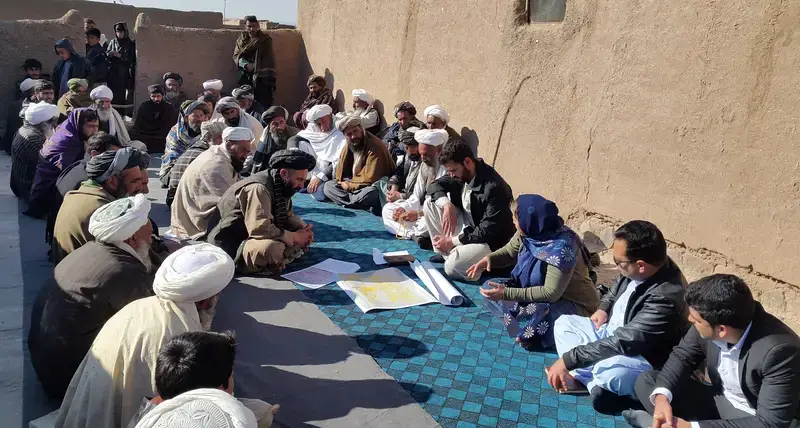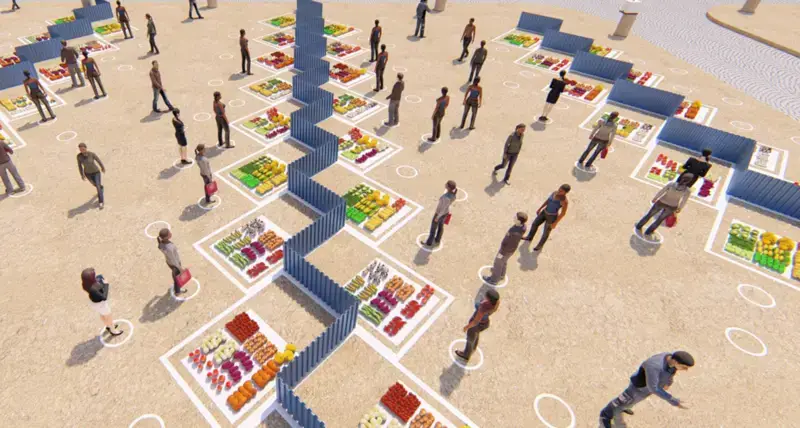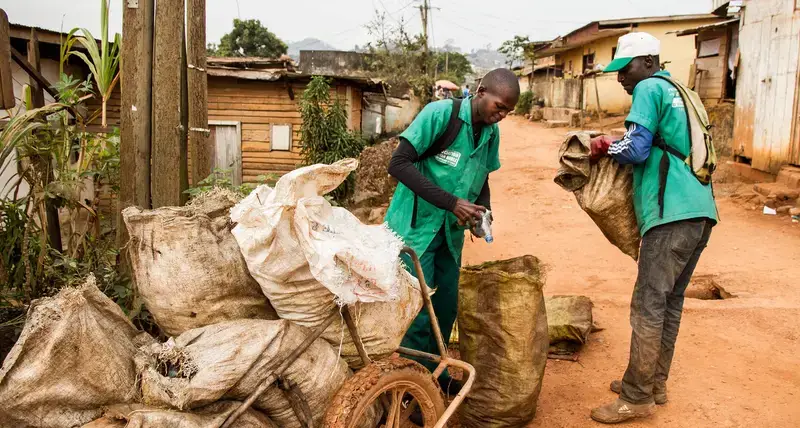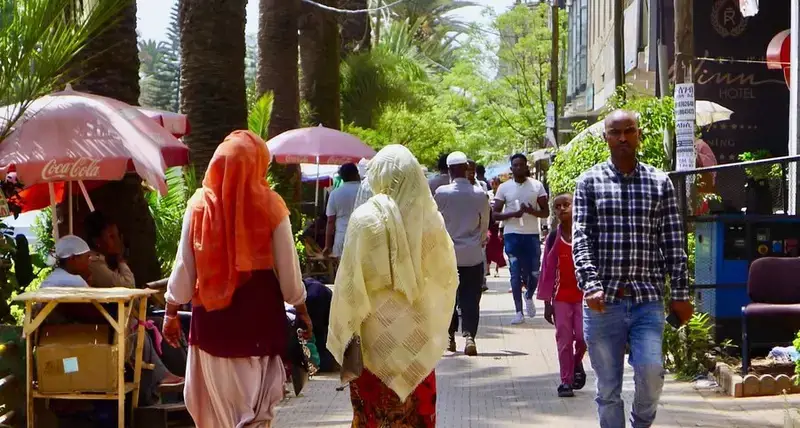Since 1998, the UN-Habitat has implemented a number of projects in Ethiopia. Key areas of partnership include: Capacity Building for Sustainable Urban Development, Implementation of the Habitat Agenda, Integrating Local Development Planning and Slum Upgrading in Urban Policy, Cities without Slums, Water for African Cities Programme - Phases I and II, Promoting Sustainable Transport Solutions for East Africa (SUSTRAN), Support to the improvement of Public Spaces in Addis Ababa, Supporting the Ethiopian Cities Sustainable prosperity Goals (ECSPGs), and Development of the State of Addis Ababa Report.
Impact
Challenges
Ethiopia is undergoing rapid urbanization. The country’s urban population is growing at more than five percent a year driven primarily by dramatic rural to urban migration. Key urban challenges include:
- Lack of affordable housing;
- Lack of strategic planning;
- Uncontrolled spatial growth;
- Lack of economic opportunities;
- Increased traffic congestion;
- Poor sanitation standards and lack of waste management strategy;
Inequality, urban unemployment, and urban poverty.
Country Beneficiaries
“I wish this project would continue as we have witnessed that it halts the problem of waste slides.
Thanks to this project, the smell has significantly reduced and there is no more fear of garbage slides. The liquid waste is not going to the river anymore.”
Bethlehem Belachew, Waste picker in Koshe, Addis Abeba, Ethiopia
Donors and partners
The success of our work in Ethiopia is dependent on the successful partnership, particularly with regional and local authorities. UN-Habitat’s work on solid waste management is done together with the city administrations of Addis Ababa and Bahir Dar. The city government of Hawassa is also a crucial partner for the project related to the sustainable development of the city cluster. The type of partnership that UN-Habitat promotes in Ethiopia is to ensure local ownership and on the job training.
Donors
Contact
Legacy content
- Total value of UN-Habitat investments (2008-2013): US$ 3,631,600
- Total number of UN-Habitat projects (2008-2013): 2 projects
- Main donors: UNEP/GEF and Spain
- Implementing partners: UNEP/GEF, UNEP/DTIE, ITDP, TRL, UITP, GIZ, World Bank, AFD
In the period between 2008-2013, UN-Habitat only had regional projects in Ethiopia.
General information
Capital: Addis Ababa
Major cities: Addis Ababa, Dire Dawa, Mek’ele, Gondar, Awasa
- Population: 91.73 million
- GDP: US$ 41.61 billion
- GDP growth: 8.5%
- Urban population (annual %): 17%
- Population growth rate (average annual %): 2.6%
- Urban population growth rate (average annual %): 4.1%
- Rural population growth rate (average annual %): 2.3%
Source: World Bank 2012
UN-Habitat projects in Ethiopia
Bus rapid transit stations, Addis Ababa
The rapid urbanisation in Ethiopia requires that urban infrastructure is built, operated and maintained in an integrated manner. The city administration has recognized that public space is inadequately and unsystematically addressed. In this project, UN-Habitat will: • Support the revision of the master plan (mainly in the areas of urban transport planning, centrality and market hierarchy, and green spaces). • Conduct a public space survey and assessment of Addis Ababa. • Support the Light Rail Transit (LRT) and Bus Rapid Transit (BRT) programmes by enhancing the stations and exchanges (interconnection points) as public spaces. • Implement at least 2 pilot projects targeting the BRT and LRT lines. • Provide design guidelines for the train and bus stations. • Provide capacity development and training to key city staff.
Project Duration: 2015 - ongoing
Value USD: 80,000
Donor: Mojang
Implementing Partners: City of Addis Ababa
Promoting Sustainable Transport Solutions for East African Cities (GEF-SUSTRAN)
Objective of the project: The project “Promoting Sustainable Transport Solutions for East African Cities” aims to reduce growth in private motorized vehicles, thus reducing traffic congestion and greenhouse gas emissions in the three capital cities of Ethiopia, Uganda, and Kenya.
The overall goal of this project is to create the technical and institutional basis for implementing sustainable metropolitan transport networks and systems and establish a demonstration corridor for sustainable urban mobility. The project is expected to support the governments in providing safe, efficient, and equitable transport to all residents, rich and poor.
Service sectors covered by the project include:Transport,Planning ,Energy, and Legislation.
The methodology: The envisaged strategic response is to upgrade the public transport systems, implement improved non-motorized transport infrastructure (such as bicycle lanes and walkways) and apply travel demand management (e.g. parking reform) as well as spatial development strategies to reduce travel.
Starting with small steps in each city seems to be the most feasible approach. It is therefore the aim of this project to also support each government in establishing a first sustainable transport corridor, which can serve as a demonstration example and act as a catalyst towards expanding the proposed networks and measures throughout each city.
- Duration:October 2010 to December 2016
- Value: USD 7,335,000
- Global Environment Facility (GEF) - USD 3,000,000;
- Co-financing (UN-Habitat, UNEP, ITDP, World Bank Kampala - USD 3,485,000;
- In kind (UN-Habitat, UNEP, ITDP, GTZ, TRL) - USD 850,000
- Donor:Global Environment Facility (GEF)
- Implementing Partners:UN-Habitat, UNEP, Governments of Uganda, Ethiopia, Kenya, through respective ministries. Institute for Transport and Development Policy (ITDP), Transport Research Laboratory (TRL), German Organisation for International Cooperation (GIZ), First African Bicycle Information Organisation (FABIO), Kampala Capital City Authority (KCCA)
Promoting Sustainable Transport Solutions for East African Cities
To create the technical and institutional basis for implementing metropolitan sustainable transport networks and systems and establish a demonstration corridor for sustainable mobility.
- Duration: January 2011 - December 2015
- Value: US$ 2,850,000
- Donor: UNEP/GEF Secretariat - Kenya
- Implementing partners: UNEP/GEF, UNEP/DTIE, ITDP, TRL, UITP, GTZ, WORLD BANK, AFD
- Location:Addis Ababa (part of regional project in Ethiopia, Kenya and Uganda)
Programme Empowering Urban Women Entrepreneurs Through Housing Development and Land Ownership in Ethiopia and Mozambique
To establish a revolving fund for affordable land and housing development; (ii) to implement a pilot housing project in a selected expansion area of Manica; and (iii) to establish a credit guarantee fund to facilitate the process.
- Duration: April 2008 - December 2012
- Value: US$ 781,600
- Donor: Spain
- Location: part of regional project in Ethiopia and Mozambique
Images





